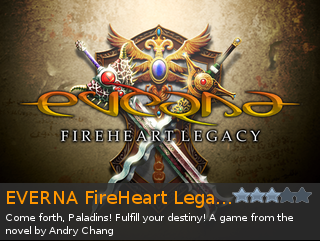Legend of King Arthur
Knights of the Round Table
From Wikipedia, the free encyclopedia
Knights of the Round Table were those men awarded the highest order of Chivalry at the Court of King Arthur in the literary cycle the Matter of Britain. The table at which they met was created to have no head or foot, representing the equality of all the members. Different stories had different numbers of knights, ranging from only 12 to 150 or more. The Winchester Round Table, which dates from the 1270s, lists 25 names of knights.
Sir Thomas Malory describes the Knights' code of chivalry as:
- To never do outrage nor murder
- Always to flee treason
- To by no means be cruel but to give mercy unto him who asks for mercy
- To always do ladies, gentlewomen and widows succor
- To never force ladies, gentlewomen or widows
- Not to take up battles in wrongful quarrels for love or worldly goods
Contents[hide] |
[edit] Origins of the Round Table
The first writer to describe the Round Table was Wace, whose Roman de Brut was an elaboration of Geoffrey of Monmouth's Historia Regum Britanniae. The actual table itself was round in order to represent that each knight was of equal value to the king and thus there was no 'head' of the table, although one understood that Arthur's place was 'the head.' In later writings, the table was said to be a gift to King Arthur from his father-in-law, King Leodogran of Cameliard, as a wedding gift upon the marriage of Arthur to Guinevere. The company was used by many subsequent authors. However, even the earliest writers ascribe to Arthur a following of extraordinary warriors; in Geoffrey, Arthur's court attracts the greatest heroes from all of Europe. In the Welsh Arthurian material, much of which is included in the Mabinogion, Arthur's men are attributed with superhuman abilities. Some of the characters from the Welsh material even appear under altered names as Knights of the Round Table in the continental romances, the most notable of which are Cai (Sir Kay), Bedwyr (Sir Bedivere), and Gwalchmai (Sir Gawain).
[edit] List of Knights of the Round Table
| This article does not cite any references or sources. Please help improve this article by adding citations to reliable sources. (help, get involved!) Unverifiable material may be challenged and removed. This article has been tagged since May 2007. |
- King Arthur
- Sir Aglovale, son of King Pellinore of Listinoise
- Sir Agravaine, son of King Lot of Orkney
- King Bagdemagus
- Sir Bedivere (Bedwyr)
- Sir Bors, King of Gannes (Gaul)
- Sir Breunor, also known as "La Cote Male Taile"
- Sir Cador
- Sir Caradoc, called "Caradoc Vreichvras", or "Caradoc Strong Arm"
- Sir Colgrevance
- Sir Constantine, son of Cador, who became king after Arthur's death
- Sir Daganoth (Leader or the fremenik isles tribe)
- Sir Dagonet, the court jester
- Sir Daniel
- Sir Dinadan, the son of Sir Brunor Senior and brother of Sirs Brunor le Noir 'La Cote Mal Taillée' and Daniel.
- Sir Ector, Arthur's foster father and Sir Kay's father
- Sir Ector de Maris, the son of King Ban of Benwick
- Sir Elyan the White, the son of Sir Bors
- Sir Erec, (see also Geraint)
- Sir Gaheris
- Sir Galahad (son of Lancelot; his seat was the Siege Perilous)
- Sir Galeshin (son of Elaine and King Nentres)
- Sir Gareth, also called Beaumains or Goodhands
- Sir Gawain (Gawaine, Walganus, Balbhuaidh, Gwalchmai)
- Sir Geraint (see also Erec)
- Sir Gingalain, called at first Sir Le Bel Inconnu ("The "Fair Unknown"), Gawain's son
|
In addition, Malory's account includes many obscure knights during the episode containing Sir Urry:
| |
| |
Sir Urry is a Hungarian knight who comes to Camelot, seeking Arthur's help in healing his wounds. In the end, 110 knights, in addition to Arthur, are unable to heal Sir Urry. When Sir Lancelot arrives in Camelot, his touch heals the wounded knight. This scene depicts all the knights together at the same time, with the exception of those deceased, on quest, or otherwise ascended (as with Galahad).
| Key People | King Arthur · Sir Ector · Guinevere · Lady of the Lake · Merlin · Mordred · Morgan le Fay · Morgause · Uther Pendragon |
|---|---|
| Knights of the Round Table | Agravaine · Bedivere · Bors · Calogrenant · Galahad · Gareth · Gawain · Geraint · Kay · Lamorak · Lancelot · Percival · Sagramore · Tristan |
| Objects | Excalibur · Holy Grail · Round Table |
| Places | Avalon · Camelot · Corbenic |
| In Media | Books · Films |



Comments